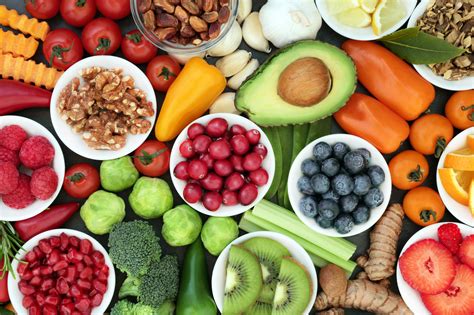How can men naturally optimize testosterone for peak energy & performance?

Unlocking Male Vitality: A Natural Path to Optimal Testosterone
Testosterone, the primary male sex hormone, plays a critical role far beyond reproduction. It influences energy levels, mood, muscle mass, bone density, cognitive function, and even cardiovascular health. As men age, or due to various lifestyle factors, testosterone levels can decline, leading to symptoms like fatigue, low libido, weight gain, and reduced athletic performance. Fortunately, many natural strategies can help men optimize their testosterone for peak energy and performance, without resorting to synthetic interventions.
The Cornerstone of Male Vitality: Understanding Testosterone
Before diving into optimization, it’s crucial to understand how testosterone functions. Produced primarily in the testes, its release is regulated by the brain’s hypothalamus and pituitary gland. Optimal levels are essential for physical and mental well-being. Modern lifestyles, characterized by chronic stress, poor diet, lack of sleep, and sedentary habits, are often culprits in lowering these vital hormone levels.

Dietary Foundations: Fueling Testosterone Production
Nutrition is a powerful lever for hormone regulation. What you eat directly impacts your body’s ability to produce testosterone:
- Healthy Fats: Cholesterol is a precursor to testosterone. Incorporate healthy fats from sources like avocados, nuts, seeds, olive oil, and fatty fish (salmon, mackerel) rich in Omega-3s. Avoid trans fats and excessive saturated fats from processed foods.
- Zinc-Rich Foods: Zinc is a vital mineral for testosterone production. Oysters are famously high, but beef, lamb, pumpkin seeds, and lentils are also excellent sources.
- Vitamin D: Often called the ‘sunshine vitamin,’ Vitamin D is actually a steroid hormone and plays a crucial role in testosterone synthesis. Spend time in the sun or consider supplementation, especially if you live in northern latitudes.
- Magnesium: This mineral can help increase free and total testosterone levels. Good sources include dark leafy greens, nuts, seeds, and legumes.
- Cruciferous Vegetables: Foods like broccoli, cauliflower, and Brussels sprouts contain compounds that help your body excrete excess estrogen, which can improve testosterone ratios.
- Limit Sugar and Processed Foods: High sugar intake can lead to insulin resistance and inflammation, both of which negatively impact testosterone levels.

Strategic Exercise: Building Strength and Hormonal Health
Exercise is a known testosterone booster, but the type of exercise matters:
- Strength Training: Compound movements like squats, deadlifts, bench presses, and rows that engage large muscle groups are particularly effective. Aim for 3-4 sessions per week with adequate rest.
- High-Intensity Interval Training (HIIT): Short bursts of intense exercise followed by brief recovery periods can significantly elevate testosterone.
- Avoid Overtraining: While exercise is good, excessive endurance training or lack of recovery can actually suppress testosterone and increase cortisol (a stress hormone). Listen to your body and prioritize rest.

Master Your Sleep and Stress: The Unsung Heroes
These two often-overlooked factors are critical for hormonal balance:
- Prioritize Quality Sleep: Most testosterone production occurs during deep sleep. Chronic sleep deprivation (less than 7-8 hours per night) can drastically reduce testosterone levels. Establish a consistent sleep schedule, create a dark and cool sleep environment, and avoid screens before bed.
- Manage Stress Effectively: Chronic stress elevates cortisol levels. High cortisol directly inhibits testosterone production. Incorporate stress-reduction techniques such as meditation, yoga, deep breathing exercises, spending time in nature, or engaging in hobbies you enjoy.

Lifestyle Habits for Sustained Optimization
Beyond diet, exercise, sleep, and stress, other lifestyle choices contribute significantly:
- Maintain a Healthy Weight: Obesity, especially abdominal fat, increases an enzyme called aromatase, which converts testosterone into estrogen. Losing excess weight can help rebalance hormones.
- Limit Alcohol Intake: Excessive alcohol consumption can impair testosterone production and increase its conversion to estrogen.
- Minimize Exposure to Endocrine Disruptors: Plastics (BPA, phthalates), pesticides, and certain chemicals in personal care products can mimic hormones and disrupt endocrine function. Choose natural products and store food in glass containers.
- Get Sufficient Sunlight Exposure: Natural light exposure not only boosts Vitamin D but also helps regulate circadian rhythm, which impacts hormone cycles.

Conclusion
Optimizing testosterone naturally is not a quick fix but a holistic lifestyle approach. By consistently implementing strategies related to nutrition, exercise, sleep, stress management, and environmental awareness, men can significantly improve their testosterone levels. This dedication will not only lead to increased energy and performance but also foster better mood, cognitive function, and overall vitality, paving the way for a healthier, more fulfilling life.









